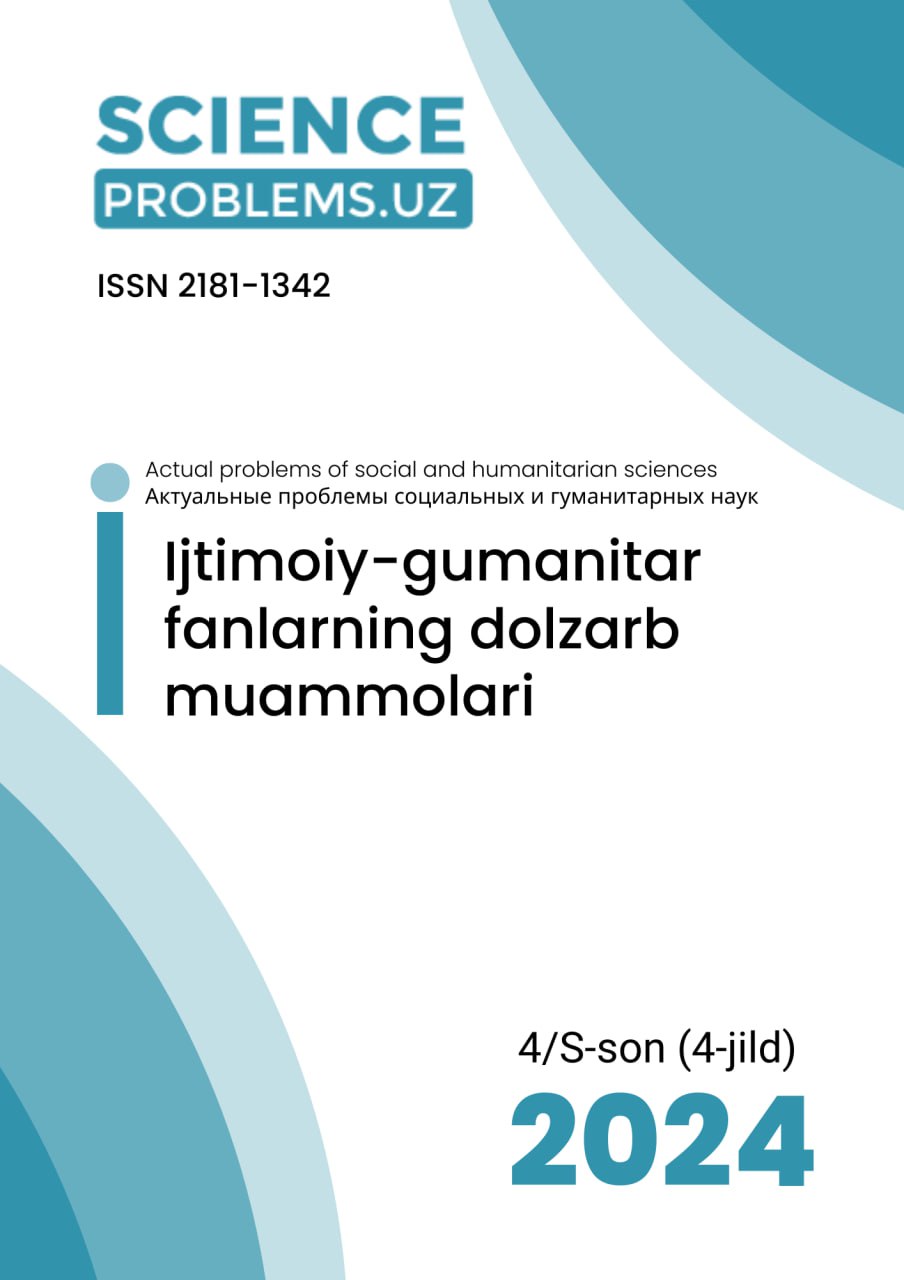ANTHROPOCENTRIC PROVERBS AND THEIR REPRESENTATION IN ENGLISH, RUSSIAN, UZBEK, KAZAKH LANGUAGES
DOI:
https://doi.org/10.47390/SPR1342V4SI4Y2024N31Keywords:
proverb, paremiology, anthropocentrism, multi-system languages, English, Russian, Uzbek, Kazakh.Abstract
Proverbs are interesting not only as units of language and speech, but also as a means of learning the national character of people, as a repository of diverse linguistic and cultural information. Proverbs contain a set of opinions developed by the people as a linguistic and cultural community. All proverbs have an anthropocentric orientation, since their meaning, edification, and moralizing are directed to a man. The proverbs about man present his main features – thinking, speaking, hard work or laziness, social status, his attitude to people, to the surrounding nature, etc. The article deals with the expression of the notion man in anthropocentric proverbs. The research material are proverbs of multisystem languages: English, Russian, Uzbek, Kazakh, in which the notion man represents both universal and national-cultural characteristics.
References
Dundes A. The meaning of folklore: the analytical essays of Alan Dundes / edited and introduced by Simon J.Bronner. Logan:Utah State University Press, 2007.– 443 p.
Mieder W. (2004) Proverbs: A Handbook. – Westport: Greenwood Press, CT. 2004. – 305 p.
Даль В. И. Пословицы русского народа. Сборник. В 2 т. Т. 1. – М.: Художественная литература, 1984. – 383 с.
Джусупов М. Антропоцентризм в триединстве человек — язык — социум и его выражение в пословице // O‘zbekistonda xorijiy tillar. — 2023. — № 5 (52). — B. 122-142.
Дубровин М.И. Английские и русские поговорки в иллюстрациях. – М.: Просвещение, 1995. – 349 с.
Жуков В. П. Словарь русских пословиц и поговорок: (около 1200 пословиц и поговорок). – М.: Русский язык, 2000. – 544 с.
Иванова Е. В. Пословичная концептуализация мира (на материале английских и русских пословиц): Дисс. ... канд. филол. наук. – СПб, 2003. – 416 с.
Кузнецов С. А. Большой толковый словарь русского языка. – СПб.: Норинт, 2000. – 1536 с.
Маджидова Р. У. Аксиологическое исследование антропоцентрических пословиц (на материале узбекского и русского языков). – Ташкент: VneshInvestProm, 2019 – 244 c.
Носирова М. О. Репрезентативный аспект социальных ценностей в русской и узбекской пословичной картине мира //Образование и инновационные исследования международный научно-методический журнал. – 2023. – №. 7. – С. 87-91.
Пермяков Г.Л. Основы структурной паремиологии. – М.: ИВЛ, 1988. – 232 с.
Тажибаева Р. Д. Проблемы исследования пословицы в современном языкознании // Вестник КазНУ. Серия филологическая. № 2 (132), 2011. – С. 171-173.








